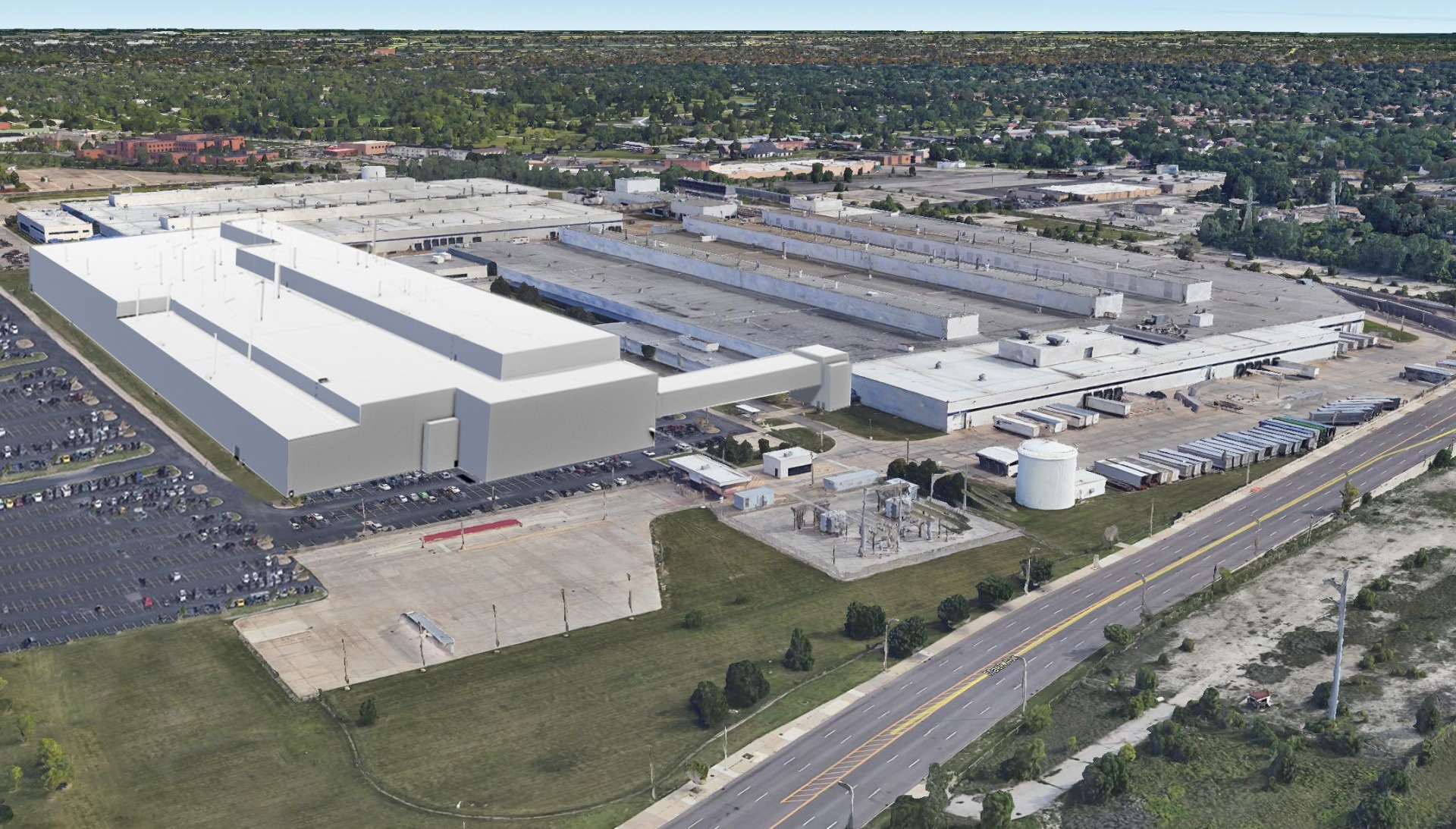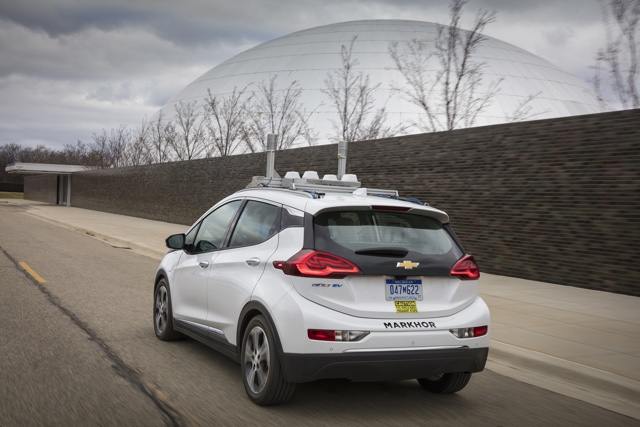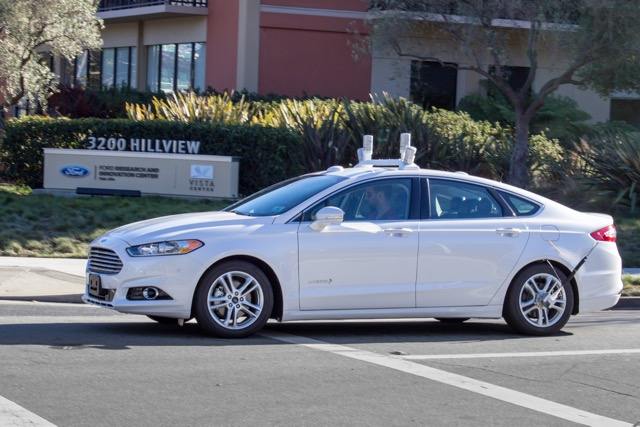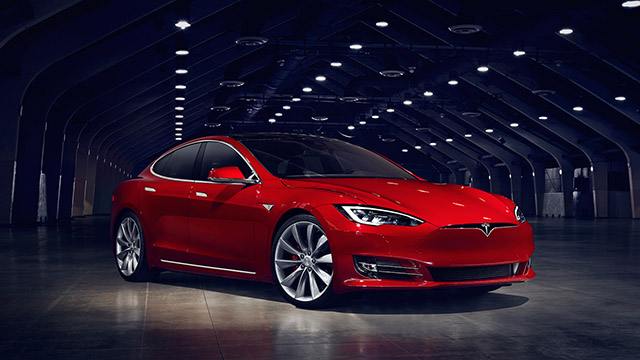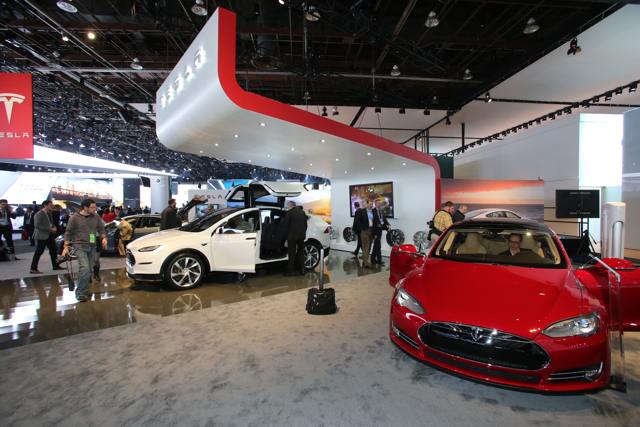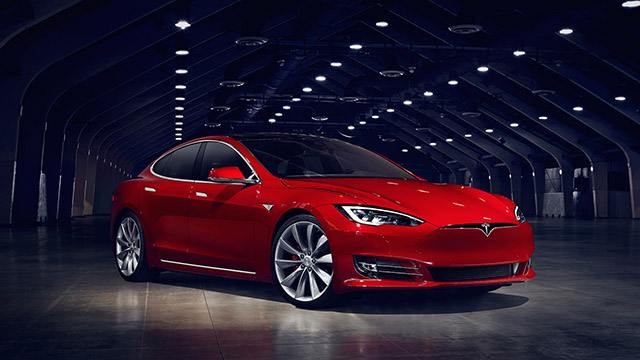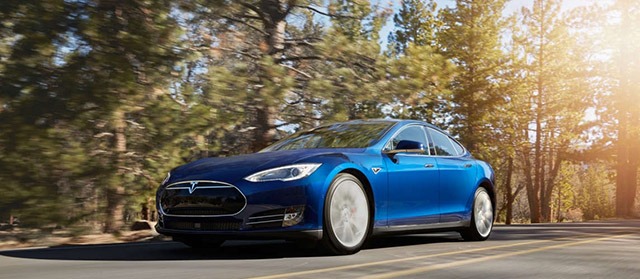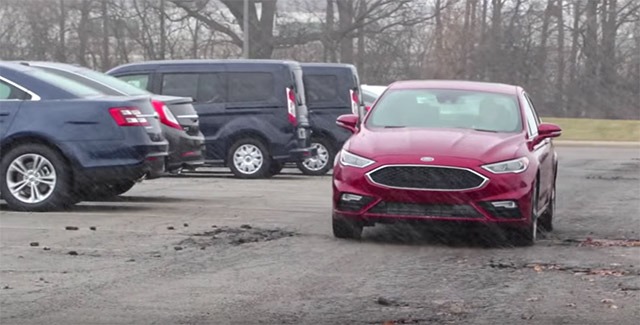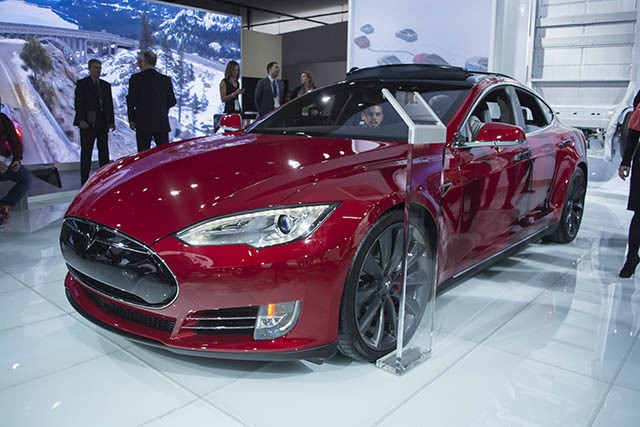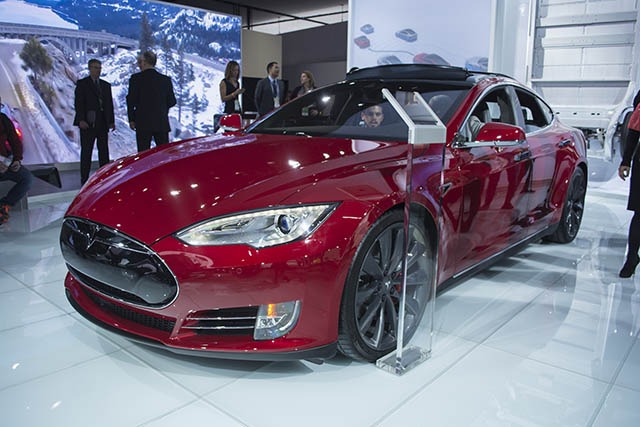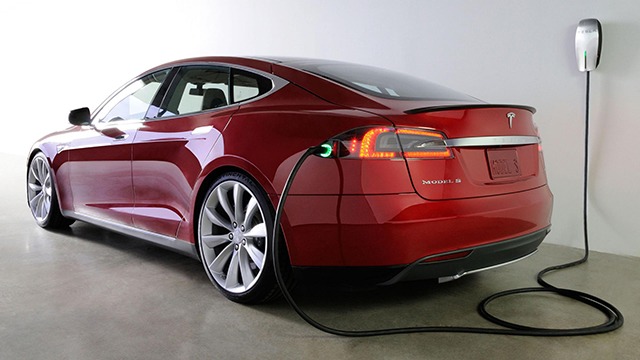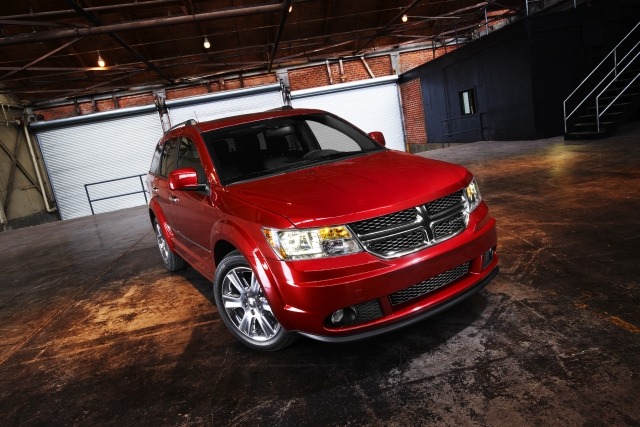Search the Community
Showing results for tags 'Michigan'.
-
Fiat-Chrysler announced a $4.5 billion investment today to build a new assembly plant in Detroit and add production at five existing facilities in Michigan. The move will increase capacity for Jeep, Ram, and Dodge Durango. $1.6 billion will go to the Mack Avenue Engine complex to convert the site into a manufacturing facility for the next-generation Jeep Grand Cherokee and an all-new three-row full-size Jeep SUV. This will create 3,850 new jobs. $900 million will go to Jefferson North for retooling and modernization for production of the Dodge Durango and next generation Jeep Grand Cherokee. This will create 1,100 jobs. The investment into Warren Truck increases to $1.5 Billion for the production of the Jeep Wagoneer and Grand Wagoneer, plus continued production of the Ram 1500 Classic. This will create 1,400 new jobs. In addition to the plant investments, FCA has announced that future Jeep products will be electrified. All three facilities will be able to produce plug-in hybrid versions with fully electric model capability in the future. The project is contingent on land acquisition near the Mack Avenue plant. FCA plans to move quickly and start construction on the new facility in late Q2 2019. When complete, the facility will be the first new vehicle assembly plant built in the City of Detroit since 1991. The Mack Ave I plant currently builds the 3.0, 3.2, and 3.6 liter Pentastar V6. That production will move to the Dundee Engine Plant. The plan would bring around 6,500 total jobs to the region. FCA Press Release on Page 2 FCA to Expand Production Capacity in Michigan to Grow Core Brands, Electrify Jeep® Vehicles $4.5 Billion to Build New Assembly Plant in Detroit and Add Production at Five Existing Michigan Facilities, Creating Nearly 6,500 Jobs FCA total committed investments in the U.S. grow to nearly $14.5 billion since 2009, with nearly 30,000 jobs created to date Investment would be next step in Company’s U.S. industrialization plan, announced in 2016 to expand Jeep® and Ram brands Introduces two new Jeep-branded “white space” products in key market segments Enables electrification of new Jeep models $1.6 billion investment would convert Mack Avenue Engine Complex into manufacturing site for next-generation Jeep Grand Cherokee and an all-new three-row full-size Jeep SUV, creating 3,850 new jobs $900 million investment at Jefferson North to retool and modernize plant for continued production of Dodge Durango and next-generation Jeep Grand Cherokee with 1,100 new jobs expected Warren Truck 2017 investment increases to $1.5 billion for production of all-new Jeep Wagoneer and Grand Wagoneer, as well as continued assembly of Ram 1500 Classic with addition of 1,400 new jobs All three assembly sites would also produce plug-in hybrid versions of their respective Jeep models with flexibility to build fully battery-electric models in the future Sterling Stamping and Warren Stamping plants to receive more than $400 million total investment to support additional production, potentially creating about 80 new jobs at Sterling $119 million investment to relocate Pentastar engine production currently at Mack I to the Dundee Engine Plant; production at Mack would end by Q3 2019 Projects contingent on land acquisition and the negotiation of development incentives with the cities of Detroit, Sterling Heights, Warren, Dundee and state of Michigan City of Detroit has 60 days to deliver on commitments outlined in Memorandum of Understanding related to Mack and Jefferson North projects February 26, 2019 , London - Fiat Chrysler Automobiles N.V. (NYSE: FCAU / MTA: FCA) confirmed today plans to invest a total of $4.5 billion in five of its existing Michigan plants, and to work with the city of Detroit and state of Michigan on building a new assembly plant within city limits. The move would increase capacity to meet growing demand for its Jeep® and Ram brands, including production of two new Jeep-branded white space products, as well as electrified models. The proposed projects would create nearly 6,500 new jobs. The plant actions detailed in today’s announcement represent the next steps in a U.S. manufacturing realignment that FCA began in 2016. In response to a shift in consumer demand toward SUVs and trucks, the Company discontinued compact car production and retooled plants in Illinois, Ohio and Michigan to make full use of available capacity to expand the Jeep and Ram brands. Those actions have resulted in the recent launches of the award-winning all-new Jeep Wrangler and all-new Ram 1500, and the introduction of the newest member of the Jeep family, the all-new Jeep Gladiator, at the 2018 Los Angeles Auto Show. “Three years ago, FCA set a course to grow our profitability based on the strength of the Jeep and Ram brands by realigning our U.S. manufacturing operations,” said Mike Manley, Chief Executive Officer, FCA N.V. “Today’s announcement represents the next step in that strategy. It allows Jeep to enter two white space segments that offer significant margin opportunities and will enable new electrified Jeep products, including at least four plug-in hybrid vehicles and the flexibility to produce fully battery-electric vehicles.” The city of Detroit has 60 days to meet the terms of a Memorandum of Understanding, which requires the acquisition of property critical to the execution of the Mack project. The additional investments are subject to the successful negotiation and final approval of development packages with the state and other local governments. Plant Investment Details FCA would invest $1.6 billion to convert the two plants that comprise the Mack Avenue Engine Complex into the future assembly site for the next-generation Jeep Grand Cherokee, as well as an all-new three-row full-size Jeep SUV and plug-in hybrid (PHEV) models, adding 3,850 new jobs to support production. The Company intends to start construction of the new Detroit facility by the end of Q2 2019 with the first three-row vehicles expected to roll off the line by the end of 2020, followed by the all-new Grand Cherokee in the first half of 2021. Also as part of this announcement, the Jefferson North Assembly Plant would receive an investment of $900 million to retool and modernize the facility to build the Dodge Durango and next-generation Jeep Grand Cherokee. FCA expects to create 1,100 new jobs at Jefferson North. The reborn Mack facility would be the first new assembly plant to be built in the city of Detroit in nearly three decades. In 1991, Jefferson North was the last new assembly plant built in the city. When complete, Mack would join Jefferson North as the only automotive assembly plants to be located completely within the city limits of Detroit. The Pentastar engines – the 3.6-, 3.2- and 3.0-liter – currently built at Mack I would be relocated to the Dundee Engine Plant as part of a $119 million investment. Pentastar production at Mack I would end by Q3 2019. Mack II has been idle since it ceased production of the 3.7-liter V-6 in September 2012. FCA also confirms the investment at Warren Truck to retool for production of the all-new Jeep Wagoneer and Grand Wagoneer, announced in 2017, along with their electrified counterparts, would increase to $1.5 billion. Production is expected to launch in early 2021. In addition to the new Jeep models, the plant would continue building the Ram 1500 Classic, which is being extended to meet market demand. It is expected that 1,400 new jobs would be added. As a result of this investment announcement, production of the all-new Ram Heavy Duty will continue at its current location in Saltillo, Mexico. To support the additional production, the Company’s Warren Stamping (Warren, Michigan) and Sterling Stamping (Sterling Heights, Michigan) plants would receive investments of $245 million and $160 million, respectively, with Sterling Stamping expected to add more than 80 new jobs. This investment is part of the Company's capital spending plan presented in June 2018. Realignment of FCA U.S. Manufacturing Operations Over the past two years, FCA has realigned production at four plants in Illinois, Ohio and Michigan to increase capacity for the Jeep Cherokee, Jeep Wrangler and Ram 1500 light-duty truck, and created additional manufacturing capacity for the Jeep Gladiator in Ohio. The investments included: $350 million in the Belvidere Assembly Plant (Illinois) to produce the Jeep Cherokee, which moved from Toledo, Ohio, in 2017. More than 300 new jobs were added to support production, which launched in June 2017. $700 million in the Toledo Assembly Complex (Ohio) to retool the North plant to produce the next-generation Jeep Wrangler. Approximately 700 new jobs were added to support production, which began in December 2017. $1.48 billion in the Sterling Heights Assembly Plant (Michigan) to build the next-generation Ram 1500 truck, adding more than 700 new jobs. Production of the new truck began in March 2018. Production of the Ram 1500 Classic continues at Warren Truck (Michigan). $273 million in the south plant of the Toledo Assembly Complex to prepare the facility to produce the all-new Jeep Gladiator. The new truck is scheduled to launch in the first half of 2019. In total, FCA has committed to invest nearly $14.5 billion in its U.S. manufacturing operations, creating nearly 30,000 new jobs since June 2009. View full article
-
Fiat-Chrysler announced a $4.5 billion investment today to build a new assembly plant in Detroit and add production at five existing facilities in Michigan. The move will increase capacity for Jeep, Ram, and Dodge Durango. $1.6 billion will go to the Mack Avenue Engine complex to convert the site into a manufacturing facility for the next-generation Jeep Grand Cherokee and an all-new three-row full-size Jeep SUV. This will create 3,850 new jobs. $900 million will go to Jefferson North for retooling and modernization for production of the Dodge Durango and next generation Jeep Grand Cherokee. This will create 1,100 jobs. The investment into Warren Truck increases to $1.5 Billion for the production of the Jeep Wagoneer and Grand Wagoneer, plus continued production of the Ram 1500 Classic. This will create 1,400 new jobs. In addition to the plant investments, FCA has announced that future Jeep products will be electrified. All three facilities will be able to produce plug-in hybrid versions with fully electric model capability in the future. The project is contingent on land acquisition near the Mack Avenue plant. FCA plans to move quickly and start construction on the new facility in late Q2 2019. When complete, the facility will be the first new vehicle assembly plant built in the City of Detroit since 1991. The Mack Ave I plant currently builds the 3.0, 3.2, and 3.6 liter Pentastar V6. That production will move to the Dundee Engine Plant. The plan would bring around 6,500 total jobs to the region. FCA Press Release on Page 2 FCA to Expand Production Capacity in Michigan to Grow Core Brands, Electrify Jeep® Vehicles $4.5 Billion to Build New Assembly Plant in Detroit and Add Production at Five Existing Michigan Facilities, Creating Nearly 6,500 Jobs FCA total committed investments in the U.S. grow to nearly $14.5 billion since 2009, with nearly 30,000 jobs created to date Investment would be next step in Company’s U.S. industrialization plan, announced in 2016 to expand Jeep® and Ram brands Introduces two new Jeep-branded “white space” products in key market segments Enables electrification of new Jeep models $1.6 billion investment would convert Mack Avenue Engine Complex into manufacturing site for next-generation Jeep Grand Cherokee and an all-new three-row full-size Jeep SUV, creating 3,850 new jobs $900 million investment at Jefferson North to retool and modernize plant for continued production of Dodge Durango and next-generation Jeep Grand Cherokee with 1,100 new jobs expected Warren Truck 2017 investment increases to $1.5 billion for production of all-new Jeep Wagoneer and Grand Wagoneer, as well as continued assembly of Ram 1500 Classic with addition of 1,400 new jobs All three assembly sites would also produce plug-in hybrid versions of their respective Jeep models with flexibility to build fully battery-electric models in the future Sterling Stamping and Warren Stamping plants to receive more than $400 million total investment to support additional production, potentially creating about 80 new jobs at Sterling $119 million investment to relocate Pentastar engine production currently at Mack I to the Dundee Engine Plant; production at Mack would end by Q3 2019 Projects contingent on land acquisition and the negotiation of development incentives with the cities of Detroit, Sterling Heights, Warren, Dundee and state of Michigan City of Detroit has 60 days to deliver on commitments outlined in Memorandum of Understanding related to Mack and Jefferson North projects February 26, 2019 , London - Fiat Chrysler Automobiles N.V. (NYSE: FCAU / MTA: FCA) confirmed today plans to invest a total of $4.5 billion in five of its existing Michigan plants, and to work with the city of Detroit and state of Michigan on building a new assembly plant within city limits. The move would increase capacity to meet growing demand for its Jeep® and Ram brands, including production of two new Jeep-branded white space products, as well as electrified models. The proposed projects would create nearly 6,500 new jobs. The plant actions detailed in today’s announcement represent the next steps in a U.S. manufacturing realignment that FCA began in 2016. In response to a shift in consumer demand toward SUVs and trucks, the Company discontinued compact car production and retooled plants in Illinois, Ohio and Michigan to make full use of available capacity to expand the Jeep and Ram brands. Those actions have resulted in the recent launches of the award-winning all-new Jeep Wrangler and all-new Ram 1500, and the introduction of the newest member of the Jeep family, the all-new Jeep Gladiator, at the 2018 Los Angeles Auto Show. “Three years ago, FCA set a course to grow our profitability based on the strength of the Jeep and Ram brands by realigning our U.S. manufacturing operations,” said Mike Manley, Chief Executive Officer, FCA N.V. “Today’s announcement represents the next step in that strategy. It allows Jeep to enter two white space segments that offer significant margin opportunities and will enable new electrified Jeep products, including at least four plug-in hybrid vehicles and the flexibility to produce fully battery-electric vehicles.” The city of Detroit has 60 days to meet the terms of a Memorandum of Understanding, which requires the acquisition of property critical to the execution of the Mack project. The additional investments are subject to the successful negotiation and final approval of development packages with the state and other local governments. Plant Investment Details FCA would invest $1.6 billion to convert the two plants that comprise the Mack Avenue Engine Complex into the future assembly site for the next-generation Jeep Grand Cherokee, as well as an all-new three-row full-size Jeep SUV and plug-in hybrid (PHEV) models, adding 3,850 new jobs to support production. The Company intends to start construction of the new Detroit facility by the end of Q2 2019 with the first three-row vehicles expected to roll off the line by the end of 2020, followed by the all-new Grand Cherokee in the first half of 2021. Also as part of this announcement, the Jefferson North Assembly Plant would receive an investment of $900 million to retool and modernize the facility to build the Dodge Durango and next-generation Jeep Grand Cherokee. FCA expects to create 1,100 new jobs at Jefferson North. The reborn Mack facility would be the first new assembly plant to be built in the city of Detroit in nearly three decades. In 1991, Jefferson North was the last new assembly plant built in the city. When complete, Mack would join Jefferson North as the only automotive assembly plants to be located completely within the city limits of Detroit. The Pentastar engines – the 3.6-, 3.2- and 3.0-liter – currently built at Mack I would be relocated to the Dundee Engine Plant as part of a $119 million investment. Pentastar production at Mack I would end by Q3 2019. Mack II has been idle since it ceased production of the 3.7-liter V-6 in September 2012. FCA also confirms the investment at Warren Truck to retool for production of the all-new Jeep Wagoneer and Grand Wagoneer, announced in 2017, along with their electrified counterparts, would increase to $1.5 billion. Production is expected to launch in early 2021. In addition to the new Jeep models, the plant would continue building the Ram 1500 Classic, which is being extended to meet market demand. It is expected that 1,400 new jobs would be added. As a result of this investment announcement, production of the all-new Ram Heavy Duty will continue at its current location in Saltillo, Mexico. To support the additional production, the Company’s Warren Stamping (Warren, Michigan) and Sterling Stamping (Sterling Heights, Michigan) plants would receive investments of $245 million and $160 million, respectively, with Sterling Stamping expected to add more than 80 new jobs. This investment is part of the Company's capital spending plan presented in June 2018. Realignment of FCA U.S. Manufacturing Operations Over the past two years, FCA has realigned production at four plants in Illinois, Ohio and Michigan to increase capacity for the Jeep Cherokee, Jeep Wrangler and Ram 1500 light-duty truck, and created additional manufacturing capacity for the Jeep Gladiator in Ohio. The investments included: $350 million in the Belvidere Assembly Plant (Illinois) to produce the Jeep Cherokee, which moved from Toledo, Ohio, in 2017. More than 300 new jobs were added to support production, which launched in June 2017. $700 million in the Toledo Assembly Complex (Ohio) to retool the North plant to produce the next-generation Jeep Wrangler. Approximately 700 new jobs were added to support production, which began in December 2017. $1.48 billion in the Sterling Heights Assembly Plant (Michigan) to build the next-generation Ram 1500 truck, adding more than 700 new jobs. Production of the new truck began in March 2018. Production of the Ram 1500 Classic continues at Warren Truck (Michigan). $273 million in the south plant of the Toledo Assembly Complex to prepare the facility to produce the all-new Jeep Gladiator. The new truck is scheduled to launch in the first half of 2019. In total, FCA has committed to invest nearly $14.5 billion in its U.S. manufacturing operations, creating nearly 30,000 new jobs since June 2009.
-
Almost a week after the state of Michigan signed into law a series of bills that allow for the testing of autonomous vehicles on public roads, General Motors announced today that it would begin testing them immediately. The plan will see GM beginning to test vehicles on road the company's technical center in Warren, MI. In due course, the testing will move to the metro Detroit area. During a press conference today, CEO Mary Barra said Detroit would be GM's primary test area for snow and cold-weather driving. “Revolutionizing transportation for our customers while improving safety on roads is the goal of our autonomous vehicle technology, and today’s announcement gets us one step closer to making this vision a reality. Our autonomous technology will be reliable and safe, as customers have come to expect from any of our vehicles,” said Barra in a statement. Along with this, General Motors is assigning the Orion assembly plant to build the next-generation autonomous testing vehicles. They'll be based on the Chevrolet Bolt EV and come equipped with LiDAR, cameras, sensors and other hardware required for full autonomy. The vehicles will be used in Detroit, San Francisco, and Scottsdale, Arizona. Currently, GM has 40 test vehicles operating in San Francisco and Scottsdale. Source: General Motors Press Release is on Page 2 GM to Start Autonomous Vehicle Manufacturing and Testing in Michigan DETROIT — On the heels of the signing of the SAVE Act legislation to support autonomous vehicle testing and deployment in Michigan, General Motors will immediately begin testing autonomous vehicles on public roads. GM also announced it will produce the next generation of its autonomous test vehicles at its Orion Township assembly plant beginning in early 2017. “Revolutionizing transportation for our customers while improving safety on roads is the goal of our autonomous vehicle technology, and today’s announcement gets us one step closer to making this vision a reality,” said General Motors Chairman and CEO Mary Barra. “Our autonomous technology will be reliable and safe, as customers have come to expect from any of our vehicles.” Testing is already underway on GM’s Technical Center campus in Warren, Michigan, and with the passage of the SAVE Act legislation will now expand to public roads on the facility’s outskirts. Within the next few months, testing will expand to metro Detroit, which will become GM’s main location for the development of autonomous technology in winter climates. Workers at the Orion Township assembly plant will build test fleet Bolt EVs equipped with fully autonomous technology. The plant currently manufactures the Chevrolet Bolt EV and Sonic. The new equipment will include LIDAR, cameras, sensors and other hardware designed to ensure system safety, leveraging GM’s proven manufacturing quality standards. The test fleet vehicles will be used by GM engineers for continued testing and validation of GM’s autonomous technology already underway on public roads in San Francisco and Scottsdale, Arizona, as well as part of the Michigan testing fleet. Since the beginning of 2016, GM has taken significant steps in its development of autonomous vehicle technology. In January, the company announced the formation of a dedicated autonomous vehicle engineering team and a $500 million investment in Lyft to develop an integrated network of on-demand autonomous vehicles in the U.S. In March, the company announced the acquisition of Cruise Automation to provide deep software talent and rapid development expertise to help speed development. In June, GM began testing autonomous Chevrolet Bolt EVs on the public roads in San Francisco and Scottsdale. The company has more than 40 autonomous vehicles testing in the two cities. View full article
- 42 replies
-
- autonomous vehicles
- general motors
-
(and 3 more)
Tagged with:
-
Almost a week after the state of Michigan signed into law a series of bills that allow for the testing of autonomous vehicles on public roads, General Motors announced today that it would begin testing them immediately. The plan will see GM beginning to test vehicles on road the company's technical center in Warren, MI. In due course, the testing will move to the metro Detroit area. During a press conference today, CEO Mary Barra said Detroit would be GM's primary test area for snow and cold-weather driving. “Revolutionizing transportation for our customers while improving safety on roads is the goal of our autonomous vehicle technology, and today’s announcement gets us one step closer to making this vision a reality. Our autonomous technology will be reliable and safe, as customers have come to expect from any of our vehicles,” said Barra in a statement. Along with this, General Motors is assigning the Orion assembly plant to build the next-generation autonomous testing vehicles. They'll be based on the Chevrolet Bolt EV and come equipped with LiDAR, cameras, sensors and other hardware required for full autonomy. The vehicles will be used in Detroit, San Francisco, and Scottsdale, Arizona. Currently, GM has 40 test vehicles operating in San Francisco and Scottsdale. Source: General Motors Press Release is on Page 2 GM to Start Autonomous Vehicle Manufacturing and Testing in Michigan DETROIT — On the heels of the signing of the SAVE Act legislation to support autonomous vehicle testing and deployment in Michigan, General Motors will immediately begin testing autonomous vehicles on public roads. GM also announced it will produce the next generation of its autonomous test vehicles at its Orion Township assembly plant beginning in early 2017. “Revolutionizing transportation for our customers while improving safety on roads is the goal of our autonomous vehicle technology, and today’s announcement gets us one step closer to making this vision a reality,” said General Motors Chairman and CEO Mary Barra. “Our autonomous technology will be reliable and safe, as customers have come to expect from any of our vehicles.” Testing is already underway on GM’s Technical Center campus in Warren, Michigan, and with the passage of the SAVE Act legislation will now expand to public roads on the facility’s outskirts. Within the next few months, testing will expand to metro Detroit, which will become GM’s main location for the development of autonomous technology in winter climates. Workers at the Orion Township assembly plant will build test fleet Bolt EVs equipped with fully autonomous technology. The plant currently manufactures the Chevrolet Bolt EV and Sonic. The new equipment will include LIDAR, cameras, sensors and other hardware designed to ensure system safety, leveraging GM’s proven manufacturing quality standards. The test fleet vehicles will be used by GM engineers for continued testing and validation of GM’s autonomous technology already underway on public roads in San Francisco and Scottsdale, Arizona, as well as part of the Michigan testing fleet. Since the beginning of 2016, GM has taken significant steps in its development of autonomous vehicle technology. In January, the company announced the formation of a dedicated autonomous vehicle engineering team and a $500 million investment in Lyft to develop an integrated network of on-demand autonomous vehicles in the U.S. In March, the company announced the acquisition of Cruise Automation to provide deep software talent and rapid development expertise to help speed development. In June, GM began testing autonomous Chevrolet Bolt EVs on the public roads in San Francisco and Scottsdale. The company has more than 40 autonomous vehicles testing in the two cities.
- 42 comments
-
- autonomous vehicles
- general motors
-
(and 3 more)
Tagged with:
-
Michigan Governor Rick Snyder signed into law today a full suite regulations regarding the testing, use and eventual sale of autonomous vehicles in the state. “By establishing guidelines and standards for self-driving vehicles, we’re continuing that tradition of excellence in a way that protects the public’s safety while at the same time allows the mobility industry to grow without overly burdensome regulations,” said Synder in a statement. The new law will allow vehicles without steering wheels or brake pedals to travel on public roads, companies to operate autonomous ride-hailing services, and sell autonomous vehicles of the public once they have been certified and tested. This law also establishes the Michigan Council on Future Mobility. Part of the state's department of transportation, the council will be tasked with developing policies and standards on autonomous vehicles, along with regulating connected vehicle networks and data sharing. Michigan's autonomous vehicle legislation has fewer restraints than states such as Nevada, Florida, and California. Source: Automotive News (Subscription Required), The Detroit News, Roadshow
- 2 comments
-
- autonomous vehicles
- law
-
(and 1 more)
Tagged with:
-
Michigan Governor Rick Snyder signed into law today a full suite regulations regarding the testing, use and eventual sale of autonomous vehicles in the state. “By establishing guidelines and standards for self-driving vehicles, we’re continuing that tradition of excellence in a way that protects the public’s safety while at the same time allows the mobility industry to grow without overly burdensome regulations,” said Synder in a statement. The new law will allow vehicles without steering wheels or brake pedals to travel on public roads, companies to operate autonomous ride-hailing services, and sell autonomous vehicles of the public once they have been certified and tested. This law also establishes the Michigan Council on Future Mobility. Part of the state's department of transportation, the council will be tasked with developing policies and standards on autonomous vehicles, along with regulating connected vehicle networks and data sharing. Michigan's autonomous vehicle legislation has fewer restraints than states such as Nevada, Florida, and California. Source: Automotive News (Subscription Required), The Detroit News, Roadshow View full article
- 2 replies
-
- autonomous vehicles
- law
-
(and 1 more)
Tagged with:
-
One group that has been fighting tooth and nail against Tesla and their direct sales model is the National Automobile Dealers Association. With Tesla filing a federal lawsuit against the state of Michigan over a law banning direct sales, NADA Chairman Jeff Carlson has made some comments as to why Tesla's direct sales model is bad. The Detroit Free Press reports that Carlson said the direct sales model is bad for consumers because it would lead to higher prices. Competition between dealers is a good thing for consumers. In a study commissioned by NADA and done by Phoenix Center for Advanced Legal and Economic Public Policy Studies, competition between dealers lead to an average of $700 in price reduction. "Every state has to look to their consumer and decide what’s best for them. Either they can continue to support the franchised dealers' discount of up to $700 ... or, the choice for the policy makers is they can offer the consumer a vertically integrated model that prices vehicles at retail," said Carlson. "The public policy makers are going to go to the consumers and say which (model) do you want? The discounted product? Or the product at retail?" Carlson also pointed out a memo that Tesla CEO Elon Musk sent out to all employees saying that they need to abide by the company's “no negotiation and no discount policy.” It should be noted that policy that Carlson used as an example only pertains to new vehicles. Vehicles that were used as floor models, test drives, or were damaged in transit are allowed to be discounted. We're to jump in here now and bring a little editorial. Carlson's argument of using price to say why the franchise model is better is ok. But there is another part that either Carlson forgot or neglected to mention - service. There is a reason why people don't like to go to dealerships. They don't feel like they are being treated as a person, more of a number for this month. You see in various ways from dealer markups on popular models, pushing rust proofing or extended warranties during the sales process, and we're only scratching the surface. Yes, Tesla may be a more expensive option. But at least you don't feel that you're being pressured to buy something. Before someone jumps in and says 'not all dealerships are like this' or some variation of it, we know. The problem is those dealers are so few. It's basically trying to find a strand of hay in a bushel of needles. Source: Detroit Free Press, Automotive News (Subscription Required)
- 5 comments
-
- comments
- direct sales
-
(and 3 more)
Tagged with:
-
One group that has been fighting tooth and nail against Tesla and their direct sales model is the National Automobile Dealers Association. With Tesla filing a federal lawsuit against the state of Michigan over a law banning direct sales, NADA Chairman Jeff Carlson has made some comments as to why Tesla's direct sales model is bad. The Detroit Free Press reports that Carlson said the direct sales model is bad for consumers because it would lead to higher prices. Competition between dealers is a good thing for consumers. In a study commissioned by NADA and done by Phoenix Center for Advanced Legal and Economic Public Policy Studies, competition between dealers lead to an average of $700 in price reduction. "Every state has to look to their consumer and decide what’s best for them. Either they can continue to support the franchised dealers' discount of up to $700 ... or, the choice for the policy makers is they can offer the consumer a vertically integrated model that prices vehicles at retail," said Carlson. "The public policy makers are going to go to the consumers and say which (model) do you want? The discounted product? Or the product at retail?" Carlson also pointed out a memo that Tesla CEO Elon Musk sent out to all employees saying that they need to abide by the company's “no negotiation and no discount policy.” It should be noted that policy that Carlson used as an example only pertains to new vehicles. Vehicles that were used as floor models, test drives, or were damaged in transit are allowed to be discounted. We're to jump in here now and bring a little editorial. Carlson's argument of using price to say why the franchise model is better is ok. But there is another part that either Carlson forgot or neglected to mention - service. There is a reason why people don't like to go to dealerships. They don't feel like they are being treated as a person, more of a number for this month. You see in various ways from dealer markups on popular models, pushing rust proofing or extended warranties during the sales process, and we're only scratching the surface. Yes, Tesla may be a more expensive option. But at least you don't feel that you're being pressured to buy something. Before someone jumps in and says 'not all dealerships are like this' or some variation of it, we know. The problem is those dealers are so few. It's basically trying to find a strand of hay in a bushel of needles. Source: Detroit Free Press, Automotive News (Subscription Required) View full article
- 5 replies
-
- comments
- direct sales
-
(and 3 more)
Tagged with:
-

Tesla Takes the State of Michigan To Court Over Direct Sales Ban
William Maley posted an article in Tesla
It was going to happen sooner or later, but Tesla is taking the state of Michigan to federal court over its ban on direct sales to consumers. According to the suit, Tesla is seeking “to vindicate its rights under the United States Constitution to sell and service its critically-acclaimed, all-electric vehicles at Tesla-owned facilities in the State of Michigan”. This suit comes after the Michigan's Secretary of State office denied Tesla a dealership license earlier in the month. “The license was denied because state law explicitly requires a dealer to have a bona fide contract with an auto manufacturer to sell its vehicles. Tesla has told the department it does not have one, and cannot comply with that requirement,” said Michigan Department of State Communications Director Gisgie Dávila Gendreau in an email to The Detroit News at the time. The law in question was signed back in 2014 by current Governor Rick Snyder which made it illegal for an auto manufacturer to sell vehicles directly to consumers. The law also prohibits a manufacturer from performing service on their vehicles. “For the last two years, Tesla has pursued legislation in Michigan that is fair to everyone and that would benefit Michigan consumers. Giving auto dealers a monopoly on car sales benefits them, but harms consumers,” said a Tesla spokeswoman to Automotive News in a statement. The lawsuit names Synder, attorney General Bill Schuette, and Michigan Secretary of State Ruth Johnson as defendants. Tesla has also requested for a jury trial. Tesla is seeking a permanent injunction to prevent officials in the state to enforce the relevant part of the law. This would force the state to give Tesla a dealer license. We'll be watching closely to see if Tesla can make any headway. Source: Automotive News (Subscription Required), The Detroit News- 11 comments
-
- direct sales
- federal court
-
(and 3 more)
Tagged with:
-
It was going to happen sooner or later, but Tesla is taking the state of Michigan to federal court over its ban on direct sales to consumers. According to the suit, Tesla is seeking “to vindicate its rights under the United States Constitution to sell and service its critically-acclaimed, all-electric vehicles at Tesla-owned facilities in the State of Michigan”. This suit comes after the Michigan's Secretary of State office denied Tesla a dealership license earlier in the month. “The license was denied because state law explicitly requires a dealer to have a bona fide contract with an auto manufacturer to sell its vehicles. Tesla has told the department it does not have one, and cannot comply with that requirement,” said Michigan Department of State Communications Director Gisgie Dávila Gendreau in an email to The Detroit News at the time. The law in question was signed back in 2014 by current Governor Rick Snyder which made it illegal for an auto manufacturer to sell vehicles directly to consumers. The law also prohibits a manufacturer from performing service on their vehicles. “For the last two years, Tesla has pursued legislation in Michigan that is fair to everyone and that would benefit Michigan consumers. Giving auto dealers a monopoly on car sales benefits them, but harms consumers,” said a Tesla spokeswoman to Automotive News in a statement. The lawsuit names Synder, attorney General Bill Schuette, and Michigan Secretary of State Ruth Johnson as defendants. Tesla has also requested for a jury trial. Tesla is seeking a permanent injunction to prevent officials in the state to enforce the relevant part of the law. This would force the state to give Tesla a dealer license. We'll be watching closely to see if Tesla can make any headway. Source: Automotive News (Subscription Required), The Detroit News View full article
- 11 replies
-
- direct sales
- federal court
-
(and 3 more)
Tagged with:
-
In news that will likely not shock anyone, Michigan's Secretary of State office has official denied Tesla a dealership license to sell vehicles in the state. The ruling issued last week follows a hearing earlier this month to review Michigan's initial motion to deny Tesla's request for a license, submitted last November. “The license was denied because state law explicitly requires a dealer to have a bona fide contract with an auto manufacturer to sell its vehicles. Tesla has told the department it does not have one, and cannot comply with that requirement,” said Michigan Department of State Communications Director Gisgie Dávila Gendreau in an email to The Detroit News. This is due to a state law signed in 2014 which states, “a vehicle manufacturer shall not … sell any new motor vehicle directly to a retail customer other than through franchised dealers.” Tesla has been fighting tooth and nail to sell their vehicles in Michigan for a few years now by lobbying and applying for a license. As Automotive News notes, Michigan is the most populated state that doesn't have a Tesla gallery or store. "At the urging of local car dealers and GM, Michigan law was changed two years ago to prevent Michigan consumers from buying cars from a Tesla store within the state. As part of the process of challenging the legality of that law, Tesla applied for a license in Michigan. Tesla will continue to take steps to defend the rights of Michigan consumers," Tesla said in a statement to Automotive News. Now people outside of Tesla have been trying to change the law. As we reported back in February, a 22-year launched a petition to repeal this law. Also, Rep. Aaron Miller, R-Sturgis introduced a bill into the state's legislature to allow companies like Tesla to do direct sales. But as The Detroit News reports, the bill has sat stagnant. “The discussion’s not over but for this session I think we’ve reached that point of no progress. I think the clock is going to run out on us,” said Miller. Now it should be stated that anyone from Michigan who wants to order a Tesla can do so from the company's website. You'll have to pickup your vehicle outside of the state however, the closest ones being in Ohio. Where does Tesla go next? That is anyone's guess at the moment. But as Tesla's general counsel Todd Maron said back in May, the company would either go to court or the legislation to make the change. Our hunch is Tesla will be going for the former. Source: Automotive News (Subscription Required), The Detroit News View full article
- 7 replies
-
- denial
- direct sales
-
(and 3 more)
Tagged with:
-
In news that will likely not shock anyone, Michigan's Secretary of State office has official denied Tesla a dealership license to sell vehicles in the state. The ruling issued last week follows a hearing earlier this month to review Michigan's initial motion to deny Tesla's request for a license, submitted last November. “The license was denied because state law explicitly requires a dealer to have a bona fide contract with an auto manufacturer to sell its vehicles. Tesla has told the department it does not have one, and cannot comply with that requirement,” said Michigan Department of State Communications Director Gisgie Dávila Gendreau in an email to The Detroit News. This is due to a state law signed in 2014 which states, “a vehicle manufacturer shall not … sell any new motor vehicle directly to a retail customer other than through franchised dealers.” Tesla has been fighting tooth and nail to sell their vehicles in Michigan for a few years now by lobbying and applying for a license. As Automotive News notes, Michigan is the most populated state that doesn't have a Tesla gallery or store. "At the urging of local car dealers and GM, Michigan law was changed two years ago to prevent Michigan consumers from buying cars from a Tesla store within the state. As part of the process of challenging the legality of that law, Tesla applied for a license in Michigan. Tesla will continue to take steps to defend the rights of Michigan consumers," Tesla said in a statement to Automotive News. Now people outside of Tesla have been trying to change the law. As we reported back in February, a 22-year launched a petition to repeal this law. Also, Rep. Aaron Miller, R-Sturgis introduced a bill into the state's legislature to allow companies like Tesla to do direct sales. But as The Detroit News reports, the bill has sat stagnant. “The discussion’s not over but for this session I think we’ve reached that point of no progress. I think the clock is going to run out on us,” said Miller. Now it should be stated that anyone from Michigan who wants to order a Tesla can do so from the company's website. You'll have to pickup your vehicle outside of the state however, the closest ones being in Ohio. Where does Tesla go next? That is anyone's guess at the moment. But as Tesla's general counsel Todd Maron said back in May, the company would either go to court or the legislation to make the change. Our hunch is Tesla will be going for the former. Source: Automotive News (Subscription Required), The Detroit News
- 7 comments
-
- denial
- direct sales
-
(and 3 more)
Tagged with:
-
G. David Felt Staff Writer Alternative Energy - www.CheersandGears.com Michigan Blocks Tesla Sales in State, Yet State Invests in Tesla According to the Detroit News, the state of Michigan who two years ago signed into law forcing any company that wants to sell auto's in state must have a franchise to do it, seems to not want to support their own thinking. Detroit News - "Michigan Retirement Fund Boost Stake in Tesla Stock" Seems Michigan just paid $48 million increasing it's stake in Tesla to a state retirement fund holding of 339,623 shares worth $72 million according to the SEC required filing. This represents a .12% of the state $60 Billion retirement fund. What is interesting is this is their second largest holding of auto stocks. First is Delphi Automotive at $94 million, then Tesla at $72 million, Ford at $17 million and GM at $13.7 million. State of michigan owns no stock in FCA. Interesting part of the story is that Tesla has applied for a state license for a dealership. State rep Aaron Miller has introduced legislation that would allow dealerships to be owned by manufactures. Seems a bit contradictory to say the least. Read the full posting at the Detroit News.
-
The latest way Tesla has been trying to get around states that ban direct sales (Michigan for example) is to apply for a dealer license. But this plan appears to not be working. Automotive News reports that North Carolina's Division of Motor Vehicles has rejected Telsa's application to attain a second dealership license and said the automaker must go through a third-party dealership group. The ruling states that Tesla didn't meet the specific requirements to become exempt from a state law prohibiting manufacturers from owning dealers. Tesla already has one store in North Carolina in Releigh and was hoping open a new store at their service center in Matthews (suburb of Charlotte). The DMV order signed by signed by Administrative Hearing Officer Larry Greene, said there are “at least three independent dealers” in the market that would be able to own and operate a Tesla dealership “in a manner consistent with the public interest.” The news gets slightly worse for Tesla. Earlier this month, The Detroit News got their hands on documents between the state of Michigan and Tesla ranging from 2014 to early 2016 detailing the saga of Tesla trying to sell vehicles in the state. The most recent development saw the Secretary of State’s office requesting Tesla to provide proof that it is a franchised dealer. If not, the state will not rule on the applications. Secretary of State spokesman Fred Woodhams in an email said this it’s “an explicit requirement in state law.” Tesla doesn't see it that way. “We don’t harm any franchised dealers by selling directly; we have no relationships with any franchised dealers we would be unfairly competing against. Unlike if General Motors opened up their own store-owned dealership across the street from a franchised dealer that they gave rights to,” said Todd Maron, Tesla's general counsel. We highly recommend checking out The Detroit News piece to get the full picture of this mess. It is becoming very clear the only way for this to be settled once and for all is for it to go to the courts. Source: Automotive News (Subscription Required), The Detroit News View full article
- 26 replies
-
- Dealer License
- Denied
-
(and 4 more)
Tagged with:
-
The latest way Tesla has been trying to get around states that ban direct sales (Michigan for example) is to apply for a dealer license. But this plan appears to not be working. Automotive News reports that North Carolina's Division of Motor Vehicles has rejected Telsa's application to attain a second dealership license and said the automaker must go through a third-party dealership group. The ruling states that Tesla didn't meet the specific requirements to become exempt from a state law prohibiting manufacturers from owning dealers. Tesla already has one store in North Carolina in Releigh and was hoping open a new store at their service center in Matthews (suburb of Charlotte). The DMV order signed by signed by Administrative Hearing Officer Larry Greene, said there are “at least three independent dealers” in the market that would be able to own and operate a Tesla dealership “in a manner consistent with the public interest.” The news gets slightly worse for Tesla. Earlier this month, The Detroit News got their hands on documents between the state of Michigan and Tesla ranging from 2014 to early 2016 detailing the saga of Tesla trying to sell vehicles in the state. The most recent development saw the Secretary of State’s office requesting Tesla to provide proof that it is a franchised dealer. If not, the state will not rule on the applications. Secretary of State spokesman Fred Woodhams in an email said this it’s “an explicit requirement in state law.” Tesla doesn't see it that way. “We don’t harm any franchised dealers by selling directly; we have no relationships with any franchised dealers we would be unfairly competing against. Unlike if General Motors opened up their own store-owned dealership across the street from a franchised dealer that they gave rights to,” said Todd Maron, Tesla's general counsel. We highly recommend checking out The Detroit News piece to get the full picture of this mess. It is becoming very clear the only way for this to be settled once and for all is for it to go to the courts. Source: Automotive News (Subscription Required), The Detroit News
- 26 comments
-
- Dealer License
- Denied
-
(and 4 more)
Tagged with:
-
California and Michigan are currently fighting a chunk of close to $4 billion in federal funding that President Barack Obama proposed last month to develop autonomous vehicles. Both are proposing World War II military sites as the place to test autonomous technologies. But Michigan has an interesting trump card; potholes. Anyone who has driven the roads in Michigan knows they are quite terrible (and that's being somewhat kind). Due to the harsh weather conditions and difficulty in keeping the roads maintained, potholes spring up and can grow into very frightening sizes. “California is not the real world -- they don’t have four seasons. We’ve got real potholes. It’s a much more real-world scenario,” said Debbie Dingell, the Democratic congresswoman representing Ypsilanti, MI. Michigan is proposing to use the run down Willow Run factory site - a former bomber and GM transmission plant - as the test site. Not only does the site offer a wide range of potholes, it is also quite large - 330 acres to be exact. The state has put up $20 million to buy and develop the site from Racer Trust, a holding company set up by GM during the 2009 bankruptcy. California's proposal is the former Navy base in Concord, California (near San Francisco) that offers 2,100 acres and 20 miles of roads. It is also the home to GoMentum Station, a facility that tests autonomous vehicles. Both locations have their advantages. California's location is nearby Silicon Valley. Michigan's location is nearby a number auto manufacturer testing and engineering facilities. Who will take the prize? Supporters believe with pothole-laden roads and the harsh winters could give Michigan the edge. We'll be watching this fight. Source: Bloomberg
- 6 comments
-
- Autonomous Vehicles
- California
-
(and 4 more)
Tagged with:
-
California and Michigan are currently fighting a chunk of close to $4 billion in federal funding that President Barack Obama proposed last month to develop autonomous vehicles. Both are proposing World War II military sites as the place to test autonomous technologies. But Michigan has an interesting trump card; potholes. Anyone who has driven the roads in Michigan knows they are quite terrible (and that's being somewhat kind). Due to the harsh weather conditions and difficulty in keeping the roads maintained, potholes spring up and can grow into very frightening sizes. “California is not the real world -- they don’t have four seasons. We’ve got real potholes. It’s a much more real-world scenario,” said Debbie Dingell, the Democratic congresswoman representing Ypsilanti, MI. Michigan is proposing to use the run down Willow Run factory site - a former bomber and GM transmission plant - as the test site. Not only does the site offer a wide range of potholes, it is also quite large - 330 acres to be exact. The state has put up $20 million to buy and develop the site from Racer Trust, a holding company set up by GM during the 2009 bankruptcy. California's proposal is the former Navy base in Concord, California (near San Francisco) that offers 2,100 acres and 20 miles of roads. It is also the home to GoMentum Station, a facility that tests autonomous vehicles. Both locations have their advantages. California's location is nearby Silicon Valley. Michigan's location is nearby a number auto manufacturer testing and engineering facilities. Who will take the prize? Supporters believe with pothole-laden roads and the harsh winters could give Michigan the edge. We'll be watching this fight. Source: Bloomberg View full article
- 6 replies
-
- Autonomous Vehicles
- California
-
(and 4 more)
Tagged with:
-
Tesla has been fighting in various states to allow for direct sales of their vehicles. The most contentious being the state of Michigan which enacted a law in October 2014 banning automakers from selling vehicles directly to consumers. Tesla has been working hard to try and change the law by offering test drives and education to legislators, to no avail. Even the Federal Trade Commission has called on the state to rethink this law. But Michigan is sticking to its guns. So Tesla decided to do the unexpected, apply for a Michigan dealer license. The Detroit News reports the California electric vehicle builder submitted applications in November to the Michigan Secretary of State Office for a dealer license. Recently, Tesla sent in follow-up information to the office. Secretary of State spokesman Fred Woodham tells the News that Tesla is applying for a 'Class A' dealership license, which allows it to sell new and used vehicles. The license requires the dealer to have a “repair facility as part of their business or have an established relationship with a licensed repair facility.” Woodham went on to explain the office is currently reviewing the paperwork and will have a decision in the next month or so. It is unclear who submitted the documents to the Secretary of State. Michigan Information & Research Service Inc., a news service based in Michigan's capital - Lansing - first reported the story. The service said Tesla could contract anyone - aside from itself - to set up a dealer. Tesla could even send a former employee to open a dealer where “in which it mandates the dealership look, act and do business exactly as the Tesla-run stores.” A Tesla spokesman tells AutoblogGreen, "As recently amended, current Michigan law prohibits Tesla from being able to license its own sales and service operations in the state. Submission of the application is intended to seek the Secretary of State's confirmation of this prohibition. Once confirmed, Tesla will review any options available to the Company to overturn this anti-consumer law." Along with Tesla's application, a 22-year old graduate of the University of Michigan has launched a petition to repeal the direct sales ban. Mick Yuille has formed a ballot committee called Eliminate (i) to force the Michigan legislature to act. If they don't, his proposal will go on the ballot for the people to decide. Yuille needs 252,000 signatures by June 1st for this happen. Source: The Detroit News, AutoblogGreen, Crain's Detroit Business View full article
- 10 replies
-
- Application
- Dealership
-
(and 3 more)
Tagged with:
-

Tesla Decides Its Time To Apply For A Dealer License In Michigan
William Maley posted an article in Tesla
Tesla has been fighting in various states to allow for direct sales of their vehicles. The most contentious being the state of Michigan which enacted a law in October 2014 banning automakers from selling vehicles directly to consumers. Tesla has been working hard to try and change the law by offering test drives and education to legislators, to no avail. Even the Federal Trade Commission has called on the state to rethink this law. But Michigan is sticking to its guns. So Tesla decided to do the unexpected, apply for a Michigan dealer license. The Detroit News reports the California electric vehicle builder submitted applications in November to the Michigan Secretary of State Office for a dealer license. Recently, Tesla sent in follow-up information to the office. Secretary of State spokesman Fred Woodham tells the News that Tesla is applying for a 'Class A' dealership license, which allows it to sell new and used vehicles. The license requires the dealer to have a “repair facility as part of their business or have an established relationship with a licensed repair facility.” Woodham went on to explain the office is currently reviewing the paperwork and will have a decision in the next month or so. It is unclear who submitted the documents to the Secretary of State. Michigan Information & Research Service Inc., a news service based in Michigan's capital - Lansing - first reported the story. The service said Tesla could contract anyone - aside from itself - to set up a dealer. Tesla could even send a former employee to open a dealer where “in which it mandates the dealership look, act and do business exactly as the Tesla-run stores.” A Tesla spokesman tells AutoblogGreen, "As recently amended, current Michigan law prohibits Tesla from being able to license its own sales and service operations in the state. Submission of the application is intended to seek the Secretary of State's confirmation of this prohibition. Once confirmed, Tesla will review any options available to the Company to overturn this anti-consumer law." Along with Tesla's application, a 22-year old graduate of the University of Michigan has launched a petition to repeal the direct sales ban. Mick Yuille has formed a ballot committee called Eliminate (i) to force the Michigan legislature to act. If they don't, his proposal will go on the ballot for the people to decide. Yuille needs 252,000 signatures by June 1st for this happen. Source: The Detroit News, AutoblogGreen, Crain's Detroit Business- 10 comments
-
- Application
- Dealership
-
(and 3 more)
Tagged with:
-
Last year, the State of Michigan signed a bill that banned an automaker from doing direct sales. This meant an automaker like Tesla couldn't sell any of their vehicles in the state. The move was widely applauded by the likes of GM and the Michigan Automobile Dealers Association. Tesla wasn't impressed by this and since then has been working on trying to change this. But it hasn't been going well. While the company has been trying to educate lawmakers and state officials, it seems everyone in the state doesn't want to bring up the debate. “There doesn’t seem to be much interest from not only the dealers, but manufacturers like GM that want to continue to shut us out of the market entirely,” said Jim Chen, Tesla’s vice president of regulatory affairs to The Detroit News. “We’re an American company that is building cars in the United States that is using over 55 Michigan suppliers — that is spending over $120 million in parts and components from Michigan suppliers to build American-made cars. Why shouldn’t we be allowed to sell in Michigan?” Chen went on to say. Terry Burns, executive vice president of the Michigan Automobile Dealers Association says Tesla is welcomed to the state, but they have to go through dealers. “They’re an automotive manufacturer, and the Michigan law says that manufacturers need to use dealers in order to sell vehicles. That’s Michigan law. We would welcome Tesla here. But we would think that as with all the other businesses that come into Michigan, they would want to follow the law,” said Burns. Interestingly enough, the state senate introduced a bill back in April to allow direct sales of three-wheeled “autocycles” to consumers in Michigan. A key automaker who stands to benefit from this is Elio Motors. In response, the Federal Trade Commission (FTC) issued a statement that criticized the move. "Automobile manufacturers have an economic incentive to respond to consumer preferences by choosing the most effective distribution method for their vehicle brands," FTC officials wrote. Tesla plans to continue their lobbying efforts in the state. “We have the majority of next year to lobby, discuss and debate the merits of what we think is a co-existence of our business model in the state of Michigan," said Will Nicholas, Tesla’s government relations manager. Source: The Detroit News View full article
- 196 replies
-
- Lobbying Efforts
- Marketplace
-
(and 2 more)
Tagged with:
-
Last year, the State of Michigan signed a bill that banned an automaker from doing direct sales. This meant an automaker like Tesla couldn't sell any of their vehicles in the state. The move was widely applauded by the likes of GM and the Michigan Automobile Dealers Association. Tesla wasn't impressed by this and since then has been working on trying to change this. But it hasn't been going well. While the company has been trying to educate lawmakers and state officials, it seems everyone in the state doesn't want to bring up the debate. “There doesn’t seem to be much interest from not only the dealers, but manufacturers like GM that want to continue to shut us out of the market entirely,” said Jim Chen, Tesla’s vice president of regulatory affairs to The Detroit News. “We’re an American company that is building cars in the United States that is using over 55 Michigan suppliers — that is spending over $120 million in parts and components from Michigan suppliers to build American-made cars. Why shouldn’t we be allowed to sell in Michigan?” Chen went on to say. Terry Burns, executive vice president of the Michigan Automobile Dealers Association says Tesla is welcomed to the state, but they have to go through dealers. “They’re an automotive manufacturer, and the Michigan law says that manufacturers need to use dealers in order to sell vehicles. That’s Michigan law. We would welcome Tesla here. But we would think that as with all the other businesses that come into Michigan, they would want to follow the law,” said Burns. Interestingly enough, the state senate introduced a bill back in April to allow direct sales of three-wheeled “autocycles” to consumers in Michigan. A key automaker who stands to benefit from this is Elio Motors. In response, the Federal Trade Commission (FTC) issued a statement that criticized the move. "Automobile manufacturers have an economic incentive to respond to consumer preferences by choosing the most effective distribution method for their vehicle brands," FTC officials wrote. Tesla plans to continue their lobbying efforts in the state. “We have the majority of next year to lobby, discuss and debate the merits of what we think is a co-existence of our business model in the state of Michigan," said Will Nicholas, Tesla’s government relations manager. Source: The Detroit News
- 196 comments
-
- Lobbying Efforts
- Marketplace
-
(and 2 more)
Tagged with:
-
The latest state to ban direct sales of vehicles is Michigan. Today, Governor Rick Synder signed a bill into law that would ban such automakers as Tesla from directly selling vehicles to consumers. This bill also allows dealers to make the decision whether or not to charge the transaction fee. "This bill does not, as some have claimed, prevent auto manufacturers from selling automobiles directly to consumers at realign in Michigan. That is because this is already prohibited under Michigan law. The current law states that a manufacturer shall not "ell new motor vehicle directly to a retail customer other than through its franchised dealers…" the Governor wrote in a letter to legislators. The bill updates a current Michigan law by removing the word 'its'. This elimination causes Tesla and any other OEM who decides to do direct sales in the state not to be able to do it. Instead they would have to sell through a network of franchised dealers. Supporters of this bill includes the Michigan Automobile Dealers Association and General Motors. "We believe that House Bill 5606 will help ensure that all automotive manufacturers follow the same rules to operate in the State of Michigan; therefore, we encourage Governor Snyder to sign it," GM said in a statement. Tesla on their part isn't happy with this law and blasted GM for its support of the law. "What's good for GM's customers is not necessarily good for Tesla's customers. What's good for gasoline cars is not necessarily good for electric cars. Tesla is selling a new product with a new technology,” the automaker said in a statement. “The evidence is overwhelming that a traditional dealer-based approach does not work for electric cars. Moreover, GM distorts the purpose of the franchise laws (including in Michigan), which are in place not to cement a monopoly for franchised dealers but rather to prevent companies with existing franchises from unfairly competing against them. Tesla has never used franchised dealers, so these concerns are simply irrelevant." Source: The Detroit News William Maley is a staff writer for Cheers & Gears. He can be reached at [email protected] or you can follow him on twitter at @realmudmonster.
-
The latest state to ban direct sales of vehicles is Michigan. Today, Governor Rick Synder signed a bill into law that would ban such automakers as Tesla from directly selling vehicles to consumers. This bill also allows dealers to make the decision whether or not to charge the transaction fee. "This bill does not, as some have claimed, prevent auto manufacturers from selling automobiles directly to consumers at realign in Michigan. That is because this is already prohibited under Michigan law. The current law states that a manufacturer shall not "ell new motor vehicle directly to a retail customer other than through its franchised dealers…" the Governor wrote in a letter to legislators. The bill updates a current Michigan law by removing the word 'its'. This elimination causes Tesla and any other OEM who decides to do direct sales in the state not to be able to do it. Instead they would have to sell through a network of franchised dealers. Supporters of this bill includes the Michigan Automobile Dealers Association and General Motors. "We believe that House Bill 5606 will help ensure that all automotive manufacturers follow the same rules to operate in the State of Michigan; therefore, we encourage Governor Snyder to sign it," GM said in a statement. Tesla on their part isn't happy with this law and blasted GM for its support of the law. "What's good for GM's customers is not necessarily good for Tesla's customers. What's good for gasoline cars is not necessarily good for electric cars. Tesla is selling a new product with a new technology,” the automaker said in a statement. “The evidence is overwhelming that a traditional dealer-based approach does not work for electric cars. Moreover, GM distorts the purpose of the franchise laws (including in Michigan), which are in place not to cement a monopoly for franchised dealers but rather to prevent companies with existing franchises from unfairly competing against them. Tesla has never used franchised dealers, so these concerns are simply irrelevant." Source: The Detroit News William Maley is a staff writer for Cheers & Gears. He can be reached at [email protected] or you can follow him on twitter at @realmudmonster. View full article
-
By William Maley Staff Writer - CheersandGears.com May 29, 2013 According to a new report from analysis firm AutomotiveCompass, Chrysler is planning to move production of the next-generation Dodge Journey from Toluca, Mexico to Sterling Heights, MI. The switch over is expected to happen in 2016, the same time the next-generation Journey is expected. Why the change in plants? The next Journey is expected to use a variation of Fiat's CUSW platform. Moving it to plant where another vehicle using the CUSW platform, the Chrysler 200 in this case, makes a lot of sense. When asked by the Detroit Free Press, a Dodge spokesman declined to comment. Source: Detroit Free Press William Maley is a staff writer for Cheers & Gears. He can be reached at [email protected] or you can follow him on twitter at @realmudmonster. View full article
-
By William Maley Staff Writer - CheersandGears.com May 29, 2013 According to a new report from analysis firm AutomotiveCompass, Chrysler is planning to move production of the next-generation Dodge Journey from Toluca, Mexico to Sterling Heights, MI. The switch over is expected to happen in 2016, the same time the next-generation Journey is expected. Why the change in plants? The next Journey is expected to use a variation of Fiat's CUSW platform. Moving it to plant where another vehicle using the CUSW platform, the Chrysler 200 in this case, makes a lot of sense. When asked by the Detroit Free Press, a Dodge spokesman declined to comment. Source: Detroit Free Press William Maley is a staff writer for Cheers & Gears. He can be reached at [email protected] or you can follow him on twitter at @realmudmonster.



